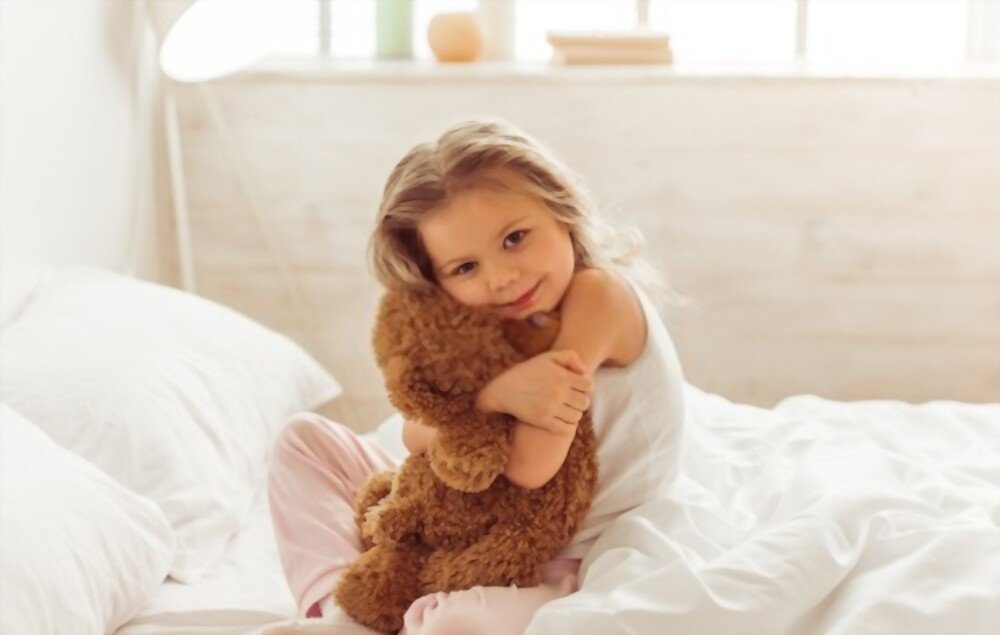How Giant teddy bear helpful in your child's mental growth?

Toys of various kinds and sizes are readily available for today's children. When it comes to toys, some are squishy and cuddly while others are high-tech, but did you know that youngsters prefer the softer options? A giant teddy bear serves as a constant companion for youngsters, listening and conversing with them everywhere they go. It may also be a way to communicate thoughts and emotions that they would not otherwise articulate verbally.
Soft toys have been proven in many studies to be beneficial to a child's growth and development. Soft toys are still popular today, even in the era of technology. Many people like them! What do you want your kid to get out of a toy when you purchase it? For the sake of your infant, or just because it's a fun toy. Isn't it amazing how peaceful your child becomes when they're playing with their favorite stuffed animals?
Read on to learn how your child's brain development benefits from cuddling a giant teddy bear.
- It makes your baby feel at ease in strange places.
Babies, like adults, experience stress and worry. For children, the world is frightening; therefore, showing them their favorite fuzzy animal may help calm them down and provide comfort. A giant teddy bear may provide comfort and familiarity for infants. Moreover, they are capable of assisting infants in self-calming. When people are put in difficult circumstances, having a teddy bear at their side may make them feel less alone and more at ease.
Many studies suggest that children learn to turn to their stuffed animals when they're upset or uncomfortable. The presence of a favorite stuffed animal creates a feeling of security while in a new setting. As a result, a young kid feels more at ease in a unique situation. Parents and child psychologists agree that children often connect happy memories with plush animals.
- Nurturing
In the same way as cuddling baby dolls will teach young children to be caring, so will soft toys. When toddlers are treated gently, they have an inherent desire to be kind and loving, frequently shown when they hug their stuffed animals.
Many children will "feed" their stuffed animals, "build beds" for them, and have "tea parties" for them in their imaginations. Toys like cuddly big teddy bear and stuffed animals teach infants compassion and appreciation for others from an early age. It teaches children the value of empathy and understanding while also fulfilling their desire to care for others.
In the end, when a kid is upset (frightened, exhausted, or overstimulated), the cuddliness of a oversized teddy bear may be a comforting distraction.
- Giant stuffed animals enhance a child's abilities and skills.
A life size teddy bear makes infants feel more comfortable, but it also helps them develop social skills. Stuffed animals may assist children in immersing themselves in imaginative play. This may involve imitating normal behaviors such as pretending to eat, talking to parents, or playing with siblings or other friends to imitate what they are used to. In this way, their social skills may be strengthened.
Soft toys may help infants learn language and communication skills since pretend play encourages them to engage with others. Through pretend play, children learn to interact with others and build the foundation for future learning of writing and reading.
Soft toys may offer the ideal combination for developing sensory skills while promoting babies' social and emotional development. Soft toys are an excellent method for babies to learn about the various colors, sizes, and textures in their environment, even at such a young age.
Wrapping Up,
Children under three are curious little explorers who pick up new skills via trial and error. By engaging in play, your child has the chance to learn new skills at their speed and based on their interests. Toys and games that your kid has access to may have a significant impact on how they develop. However, how can you choose the appropriate toys for your child? Don't worry; you can afford to give your infant a cuddly companion by visiting Boobearfactory.com.
